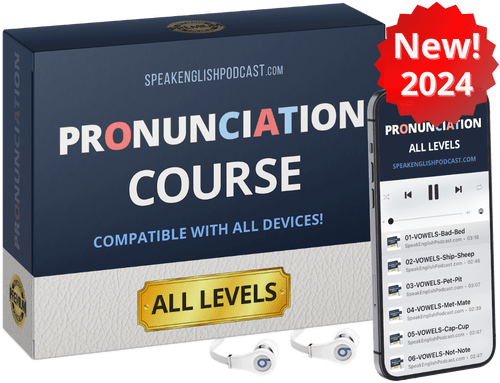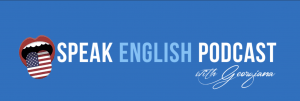Listen to a new episode of Speak English Now Podcast, your favorite material for practicing your spoken and heard English. You will also learn about lifestyle and culture, language, vocabulary, and how to improve your English more effectively.
Transcript:
Hi, everyone! I am Georgiana, your English teacher and founder of SpeakEnglishPodcast.com. My mission is to help you speak English fluently.
Today we are going to look at some trendy words (popular words.) These words have been added to the dictionary in the last decade.
And with a mini-story, you are going to improve your fluency. I’ll tell you a story while asking you many questions that you have to answer right away. It’s like talking to another person in English.
Please, visit SpeakEnglishPodcast.com to get the transcript of today’s episode. And follow me on Facebook, Instagram, TikTok, YouTube, etc.
Let’s get started!
As I said today, we will look at some words added to the dictionary in the last decade. These are trendy words, and I’m sure most of them sound familiar to you.
Let’s start with the first word:
1. Jeggings
The word was introduced into the dictionary in 2015.
Jeggings are a blend of jeans and leggings.
When they first came out, I was fascinated by these pants. They are the most comfortable thing ever in my opinion, and yet they look so much like jeans.
2. YouTuber
The term was introduced into the dictionary in 2016.
YouTube appeared in 2005 and since then, millions of people have been uploading videos on the platform on a regular basis.
I started creating weekly videos in 2012, but it wasn’t until 2016 that the word was added to the dictionary.
According to the Oxford Dictionary, a YouTuber is a person who uploads, produces, or appears in videos on YouTube.
3. LOL
The word was introduced into the dictionary in 2011.
Though this word is still popular, we have actually been using it for many years.
So, what’s LOL? It’s an abbreviation of laughing out loud or laugh out loud.
The word abbreviation means a shortened form of a word or phrase.
4. Facebook
The term was introduced into the dictionary in 2018.
Did you know that we have used Facebook so many times that the verb to facebook has emerged?
So “to facebook” means to spend time using the social media website or app Facebook.
5. Skype
The word was introduced into the dictionary in 2014.
Before other apps like Zoom or FaceTime existed, Skype was the most popular app on the Internet for video calls.
According to the Oxford Dictionary, to skype means to have a spoken conversation with (someone) over the Internet using Skype, typically also viewing by webcam.
(END OF THE EXTRACT).
Get the FULL TEXT in PDF here.
Resources:
- Audio MP3 (right-click to save the audio)
- FULL-TEXT PDF (right-click to save the TEXT)
Recommended Material:



Congratulations great course darling
Thank you!!
Hi Georgiana, my name is Jenyffer, I’m brazilian, before your podcast i hated english, but now I’m starting like. Than you so much you are incrdible.
XOXO